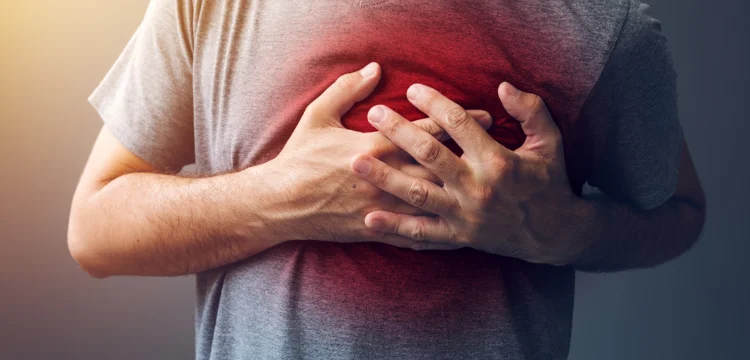Understanding the signs and symptoms of a heart attack is crucial for prompt medical intervention, which can be life-saving. Here’s a comprehensive overview based on recent guidance and medical insights:
Common Signs and Symptoms of a Heart Attack:
- Chest Discomfort:
- The most common symptom is discomfort in the chest, which can feel like pressure, squeezing, fullness, or pain.
- This discomfort may come and go, or persist for several minutes.
- Discomfort in Upper Body:
- Pain or discomfort in one or both arms, the back, neck, jaw, or stomach.
- This pain is often described as radiating from the chest and may be accompanied by a feeling of heaviness or tightness.
- Shortness of Breath:
- Feeling breathless or having difficulty breathing, which may occur without exertion or worsen over time.
- This can indicate fluid buildup in the lungs due to the heart’s inability to pump effectively.
- Other Possible Symptoms:
- Breaking out in a cold sweat.
- Nausea or vomiting.
- Lightheadedness or dizziness.
- Unusual Fatigue:
- Persistent tiredness or weakness, even after getting adequate rest.
- This can be a sign of the heart struggling to pump blood efficiently.
- Palpitations:
- Irregular heartbeats, often described as fluttering or rapid heartbeat.
- This may be accompanied by a sense of anxiety or impending doom.
Early Warning Signs Days in Advance:
- Intermittent Chest Discomfort: Often mistaken for indigestion or muscle strain, but when combined with other symptoms, it can signal heart issues.
- Unexplained Fatigue: Persistent tiredness despite rest may indicate compromised heart function.
- Shortness of Breath: Especially if it occurs without exertion or worsens progressively.
- Palpitations: Irregular heartbeats with accompanying anxiety.
- Other Symptoms: Nausea, lightheadedness, or cold sweats, particularly under stress.
Symptoms in Women:
- Women may experience symptoms less typically associated with heart attacks, such as:
- Shortness of Breath
- Nausea/Vomiting
- Back or Jaw Pain
Unique Experiences:
- Variability: Symptoms can vary widely among individuals and may not always include classic chest pain.
- Different Presentations: Some individuals may experience jaw pain, back pain, extreme fatigue, or nausea instead of chest discomfort.
- Duration and Pattern: Symptoms may come and go, but during a heart attack, they usually persist and intensify over time.
Action Steps:
- Recognize Symptoms: Be aware of the signs of a heart attack, especially if you have risk factors such as high blood pressure, diabetes, or a family history of heart disease.
- Seek Medical Help: If you suspect a heart attack, call emergency services immediately. Time is critical for minimizing damage to the heart muscle.
- Follow Medical Advice: After a heart attack, follow your doctor’s advice for medications, lifestyle changes, and rehabilitation to reduce the risk of future events.
Understanding these signs and acting promptly can significantly improve outcomes in the event of a heart attack. Early recognition and intervention are key to saving lives and minimizing the impact of cardiovascular events.











